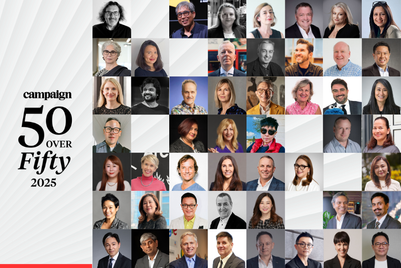
Nearly 70% of respondents to a Campaign Asia-Pacific survey said they have personally seen bribery impact the outcome of an agency-selection process. Meanwhile, 82% said they had heard convincing secondhand accounts of unfair payments playing a part in a decision that ideally should be based solely on merit.
"It is a plague," one respondent commented.
The survey, posted Friday (September 29), drew 29 responses. About two-thirds of respondents reported working in an agency, about 15% for a brand, and a small number for media owners or platforms. Though admittedly the sample is not large enough to be truly representative, the results (detailed in graphic form below) nonetheless confirm that the issue is a serious one.
In fact, 85% of respondents said bribery is a problem in APAC overall, with a similar percentage indicating it's a problem in the markets where they work.
Respondents said India, China, Indonesia, Malaysia and Pakistan have the most pervasive problem.
"Bribery is assumed to be part of business life in China," one respondent said.
About 29% of respondents said they believe bribery impacts 70% or more of the pitches in their markets, although about two-thirds of respondents believe it impacts 50% of pitches or less.
Bribery is clearly an equal-opportunity endeavour: Respondents said both independent agencies and agencies associated with multi-market networks play ball. Futhermore bribery takes place in creative, media, PR and production pitches, with B2B, B2C and government clients all taking part to varying degrees (see details below).
Some respondents were pretty sanguine about the existence of bribery in the industry.
"Bribery is not an issue in the sense that industry has a 'problem' with it," one respondent said. "Most agency heads see it as assured biz and guaranteed payments. It becomes an issue to agencies that cannot afford the kickback or do not want to part with it."
"I think to a large extent, the issue in Asia is a generational one," said another respondent. "For generations, there has been a practice of 'favours' for business. Many people do not see this as bribery per se. And unfortunately, in many Asian countries, corruption is rife through all aspects of society—political, business and social. Therefore, it will probably take another 25+ years to completely change the habit."
Another said simply: "Bribery is hardwired into our DNA."
"If you look at how the world works, bribery is rampant across all industries," another respondent said. "It all starts with the corrupt politicians (backed by corrupt sponsors) getting elected. So really what I am saying is that you cannot stop this problem until you fix the parent system!"
Some believe independent pitch consultants can play a part in stemming the practice.
"The only way to ensure it does not occur in pitches is to use a truly independent third party to manage the process from beginning to end," one person said.
Another respondent was not so sure: "Pitch agencies often have strong biases, suspect taking bribes from small local or regional agencies."



.jpg&h=334&w=500&q=100&v=20250320&c=1)

+(900+x+600+px)+(3).png&h=334&w=500&q=100&v=20250320&c=1)




.jpg&h=334&w=500&q=100&v=20250320&c=1)






.jpg&h=268&w=401&q=100&v=20250320&c=1)

